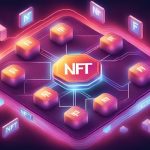
In the fast-paced world of cryptocurrencies, where technological advancements and regulatory developments constantly reshape the landscape, understanding the potential of new tokens is crucial for investors, developers, and enthusiasts alike. Beyond financial transactions, these tokens are becoming key players in reshaping industries and redefining the way we interact with digital assets. Join us on a journey through the evolving universe of new tokens, as we unravel their significance, explore the factors influencing their potential, and analyze both the opportunities and challenges they bring to the forefront of the crypto revolution.
Types of New Tokens: Unlocking the Potential of Utility, Security, and Governance
Utility Tokens:
Utility tokens, the workhorses of the blockchain world, represent more than just a medium of exchange. These tokens find their utility within decentralized ecosystems, providing access to a platform’s services, voting rights, or other functionalities. Characterized by their practical applications, utility tokens empower users to actively participate in the blockchain networks they support. A prime example is Ethereum’s Ether (ETH), facilitating smart contract execution and powering decentralized applications (DApps).

Security Tokens:
In the ever-evolving crypto landscape, security tokens have garnered attention for their compliance with regulatory frameworks. These tokens, backed by real-world assets, are subject to securities laws. Their issuance and trading involve careful adherence to regulations, providing investors with legal protection. Noteworthy security token projects include tZERO, offering tokenized securities and fostering a bridge between traditional finance and blockchain.
Factors Influencing Token Potential: Navigating the Dynamics of Technology, Use Cases, and Regulation
Technology and Innovation:
In the fast-paced world of cryptocurrency, technological advancements form the bedrock of a token’s potential. Blockchain evolution and continuous innovation in distributed ledger technology play a pivotal role. As protocols enhance scalability, interoperability, and security, tokens benefit from improved infrastructure. Smart contract capabilities further elevate the potential, enabling self-executing contracts that automate complex processes, enhancing efficiency, and expanding the utility of tokens.

Use Cases and Real-World Applications:
The potential of new tokens extends far beyond financial transactions. Sectors like healthcare, supply chain, and gaming are increasingly adopting blockchain technology, providing fertile ground for token applications. Whether facilitating transparent supply chain management or enabling decentralized identity verification, new tokens are becoming integral to revolutionizing industries. Beyond finance, the versatility of these tokens in real-world applications adds significant value, diversifying their use and driving adoption.
Regulatory Landscape:
Navigating the regulatory landscape is a critical aspect influencing token potential. Compliance challenges and opportunities arise as governments worldwide grapple with understanding and regulating the crypto space. Clear regulations offer a sense of security, attracting institutional investors. Simultaneously, regulatory uncertainty can pose hurdles. Understanding and adapting to the evolving regulatory environment is paramount, as it directly impacts the acceptance and adoption of tokens on a global scale. Compliance not only ensures legal adherence but also contributes to building trust and legitimacy in the broader market.

 Navigate the crypto and NFT landscape with ShareNFT. From investment tips to technological advancements, we unravel the complexities of blockchain. Empower yourself to make informed decisions in the dynamic world of digital finance.
Navigate the crypto and NFT landscape with ShareNFT. From investment tips to technological advancements, we unravel the complexities of blockchain. Empower yourself to make informed decisions in the dynamic world of digital finance. 




